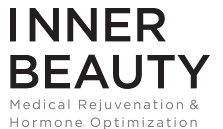Breast Cancer Awareness Month: Menopause, estrogen and breast cancer risk
Menopause, Estrogen and Breast Cancer Risk
Breast cancer risk factors vary greatly. When you consider age, family history and your own health history it can be hard to be clear where you stand with your risk. But, one breast cancer risk factor that’s crystal clear is traditional oral hormone replacement therapy after menopause. Traditional oral hormone replacement therapy is strongly linked to an increased risk of breast cancer. If you are one of the millions of women in menopause, take a few minutes to understand this breast cancer risk factor. We will educate you on your safe options to help guide your choices for a comfortable symptom recovery during this major life change.
What is Menopause?
Menopause is a broad term encompassing one of the most significant changes a woman’s body goes through. There are 3 stages of menopause: perimenopause, (active) menopause and post menopause. The hallmark of all of these is hormone imbalance.
A Word on Estrogen
The major hormones at play in the female system are estrogen, progesterone and testosterone. They are all important and needed in certain amounts throughout the female life cycle regardless of age. Estrogen is widely regarded as the childbearing hormone. Because of this, there is sometimes a misconception that it is not needed after baby-making days are gone. Not so. Estrogen in certain amounts maintains good brain health, bone strength and muscle integrity…some of the most important things you’ll need well into old age.
Perimenopause
Usually beginning in the mid to late 30s the ovaries slow their production of the important female hormone, estrogen. Estrogen is critical for childbearing. With that, as a woman reaches what her body deems the end of the childbearing years it signals this reduction in estrogen. Later, estrogen production will cease altogether: active menopause.
Menopause
The active menopause years are some of the most troublesome simply because of the symptoms. Some women opt for hysterectomy or oophorectomy (removal of the ovaries, leaving the uterus) during this time. For others their ovaries will naturally stop producing estrogen. Hot flashes, vaginal health changes, unexplained weight gain and stubborn weight loss are just a few symptoms that land women in their provider’s exam room lamenting sleepless nights and bigger dress sizes. What the heck? They didn’t change a thing and yet everything is changing. Hormone Replacement Therapy or HRT has been prescribed for decades to alleviate the symptoms and replace vital estrogen. But, what we know now through longitudinal studies is that the breast cancer risk is much higher in women who use traditional oral hormone replacement therapy, especially for 10 years or longer. And, considering menopause hits around 50 it is safe to say the 10-year use population is large.
Post Menopause
The post menopause years signal the onset of no estrogen production, whether brought on surgically or naturally. It is very important to maintain therapeutic levels of important hormones like estrogen even during the post menopause years.
Alternatives to HRT
Most women will feel the effects of losing estrogen as their bodies move through the menopause years. Sometimes their family and friends will, too. Between the energy dips and mood swings life just may not seem the same. Aside from quality of life, replacing estrogen is necessary for optimal brain and body health. So, what can you do to achieve hormone balance and stay outside of cancer risk?
For previous cancer survivors and women wanting the safest options available, here are 3 ways to manage estrogen levels and cancer risks throughout menopause:
- Get plenty of healthy movement: walking, swimming, yoga, cardio if you can. Get your heart pumping in a healthy way for 30 minutes a day.
- Get a thorough hormone evaluation and consider bio-identical hormone replacement therapy with BioTE®. BioTE® is a plant-based alternative scientifically backed for efficacy and safety.
- Make sure your diet is a healthy mix of leafy greens and powerful vegetables, along with proteins.
At Inner Beauty, we recommend looking for alternatives to synthetic estrogen and progestins given orally as they have increased risk for stroke, MI, blood clots and increased risk for breast cancer. We can discuss this in detail with you.
You can’t keep menopause from happening but you can manage the effect on your life, safely. Give Inner Beauty a call today to discuss your hormone needs.

